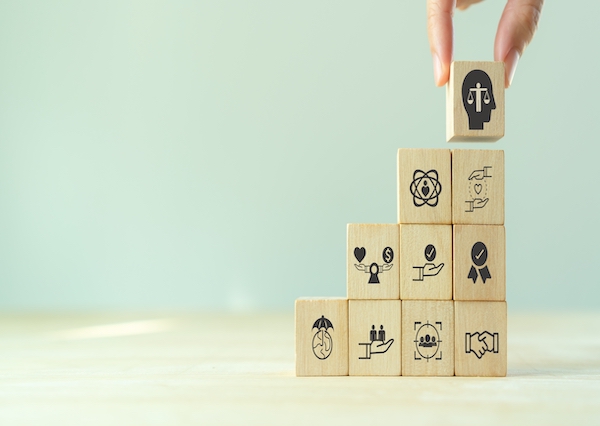Fairness (or unfairness) is a concept that we understand from a very, very early age. My very young daughters, when they fight with each other, it is usually based on a grievance of unfairness that they perceive has transpired in their play. Scientists have argued that our ability to perceive fairness or unfairness is an evolutionary trait that has served humans well by enabling us to build trust and organize towards common, large goals. More contemporary evidence shows that high-trust societies perform better on a variety of economic outcomes.
George Schultz once said that trust is the coin of the realm. “When trust was in the room – the family room, the classroom, the team room, the boardroom – good things happened. When trust was not in the room, good things did not happen. Everything else is details.” And at the core of building trust is fairness.
While we cannot control the unfairness of acts of nature, we can affect fairness through the human institutions that we build – our legal and political institutions, our financial institutions, our education and work institutions, and so on. Fairness is not only the right thing to do, but it makes us all better off. A paper by economists found that improving the fairness of our education and employment systems significantly increased the flourishing of talent, which in turn increased overall economic prosperity in the US over the last 60 years. That is work I am passionate about, helping improve opportunities and institutions so they can be fairer and better.
But how to define fairness? It is actually not straightforward and that is a big part of the challenge. Fairness has a mathematical part and a human part. It requires understanding the technical rigor but also understanding the context, and how it affects perceptions, incentives, and trust. In my time in academia, I’ve gotten to appreciate the technical aspects of fairness. In my last decade in corporate America, I’ve come to appreciate the human aspects.
The most important aspect of the public launch of ChatGPT, in my opinion, is the attention it is getting both on its potential as well its fallibilities. AI advancements have been happening for quite some time now, but ChaptGPT is the first instance where the broader public can marvel at its potential for transformation, both positive from a technological standpoint but perhaps negative from a societal trust standpoint.
AI is here. But we need to make sure it doesn’t erode societal trust, which is the coin of the realm. With that mission, we have launched FairNow. Scrutiny and regulation of AI systems in all domains, but especially HR, is rightfully coming, as these decisions affect people’s careers and livelihoods. Lawsuits in the HR domain have ramped up, the EEOC and the OFCCP are making their intentions clear about the importance of audits, NYC has passed an AI bias law (NYC LL 144) in hiring and others will likely pass this year. And I can say pretty confidently that most companies are not ready. We want to help companies ensure, and individuals know, that AI and human decision-making systems are well-managed and operate fairly, explainably, and effectively. Because without that trust, good things will not happen. Join us on this journey. #trustworthyAI

